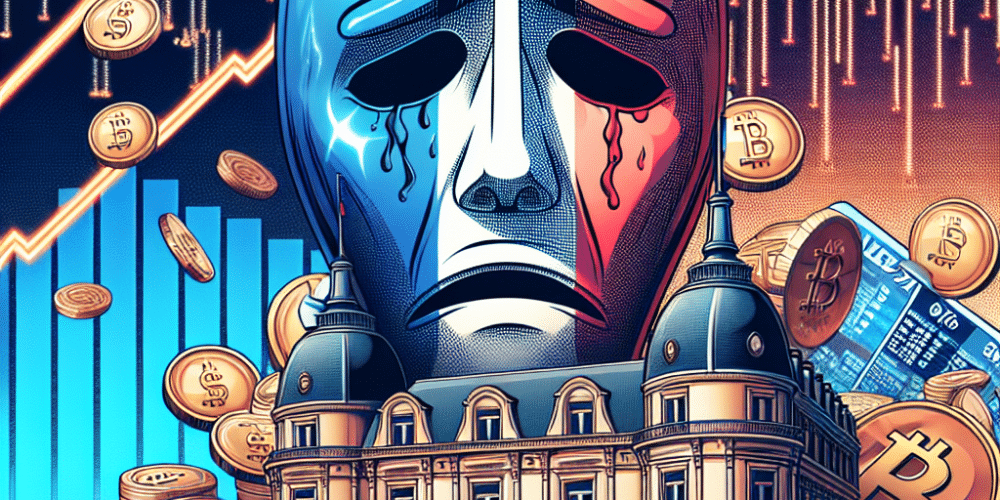Casinos de France warns that legalising online casinos could severely impact the country’s job market and economy.
France’s government is once again deliberating the potential legalisation of online casino gambling, reigniting a heated debate within the country’s gaming industry. However, the nation’s land-based casino sector, led by the trade association Casinos de France, maintains a staunch resistance to any changes in regulation. The association has passionately appealed to governmental authorities, cautioning against the move to legalise internet gambling platforms.
In a detailed report, Casinos de France claims that introducing a regulated framework for online casinos could result in a significant €546 million deficit for the national treasury. This figure encompasses not only the direct economic effects on brick-and-mortar casinos but also factors in associated costs such as increased health-related spending and potential job losses.
The organisation has also refuted claims from AFJEL, the online gambling lobby, which argues that France is forfeiting approximately €1.2 billion annually due to patrons engaging with unlicensed international online gambling sites. These claims, according to Grégory Rabuel, president of Casinos de France and head of Barrière Group, are misleading and present a deceptive picture. “The €1.2 billion lost revenue put forward by AFJEL does not exist. It’s a hoax, and worse, it’s a loss for the state,” he stated emphatically, highlighting the potential repercussions on local employment, municipal budgets, and cultural life.
Rabuel further emphasized the broader societal concerns, noting that widespread online gambling could exacerbate mental health issues, potentially costing social security systems hundreds of millions in additional expenses. Such outcomes would starkly contrast with the benefits currently provided by the 203 land-based casinos and seven gaming clubs in Paris, which collectively employ over 31,000 individuals. These establishments contribute significantly to the public coffers with €1.6 billion in taxes and social security payments and generate over €600 million annually for local authorities.
The French government’s consideration of online casino regulation comes after the liberalisation of online sports betting and poker around 15 years ago, which marked a significant shift in the nation’s gambling policies. Despite these previous changes, the path towards legalising online casino gaming remains fraught with opposition, particularly from land-based casino operators and municipal leaders who fear the adverse effects on local economies.
Casinos de France has drawn attention to the experiences of other European nations, such as Sweden, where the advent of regulated online gambling has led to the closure of all Casino Cosmopol venues operated by Svenska Spel. Despite stringent regulations, nearly 40% of gambling activities in Sweden occur on unlicensed platforms, a reality that French casino operators warn could be replicated should France proceed with legalising online casinos.
The argument extends beyond economics, with Casinos de France asserting that traditional casinos offer a safer and more controlled gambling environment. They underscore their commitment to social responsibility, citing comprehensive player screening processes, exclusion of minors, and the monitoring of risky behaviours by trained personnel as critical elements of their operation. In contrast, the digital realm lacks these safeguards, potentially fostering an unregulated environment prone to addiction and other social issues.
Previously, during a consultation on online gambling, Casinos de France proposed that any legalisation of online casinos should include an exclusivity period for land-based venues, allowing them to adapt and transition. However, this suggestion was dismissed by their digital competitors, highlighting the divide between the two sectors.
Despite the potential for increased revenue, the association warns of a deceptive allure, stating: “Everywhere, the promise of new revenue has turned into a net loss for local communities: decreased economic activity, job losses, a surge in risky behaviour and the persistence of a thriving black market.” The experience in other markets indicates that digital gambling captures existing customers rather than expanding the market, inadvertently supporting illegal activities.
Conversely, proponents of online gambling regulation argue that by bringing the activity into a legal framework, the government could exert better control over the industry, ensuring player protection and securing tax revenues that are currently lost to offshore sites. They contend that regulation could facilitate a balance between physical and online gambling, encouraging innovation and competitiveness within the sector.
As the debate continues, the future of France’s gambling landscape hangs in the balance. The government must weigh the potential economic benefits of legalising online casinos against the risks posed to its established land-based gaming industry and the broader social implications. As stakeholders from both sides await a decision, the discussion underscores the complex interplay between regulation, economic interests, and social responsibility in the modern gaming industry.

Garry Sputnim is a seasoned journalist and storyteller with over a decade of experience in the trenches of global news. With a keen eye for uncovering stories that resonate, Alex has reported from over 30 countries, bringing light to untold narratives and the human faces behind the headlines. Specializing in investigative journalism, Garry has a knack for technology and social justice issues, weaving compelling narratives that bridge tech and humanity. Outside the newsroom, Garry is an avid rock climber and podcast host, exploring stories of resilience and innovation.
















